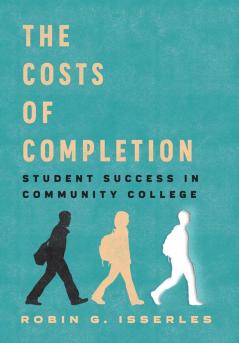English
Hardback
₹3847
₹4703
18.2% OFF
(All inclusive*)
Delivery Options
Please enter pincode to check delivery time.
*COD & Shipping Charges may apply on certain items.
Review final details at checkout.
Looking to place a bulk order? SUBMIT DETAILS
About The Book
Description
Author
<p> <b>To improve community college success we need to consider the lived realities of students.</b> </p><p>Our nation's community colleges are facing a completion crisis. The college-going experience of too many students is interrupted lengthening their time to completing a degree--or worse causing many to drop out altogether. In <i>The Costs of Completion</i> Robin G. Isserles contextualizes this crisis by placing blame on the neoliberal policies that have shaped public community colleges over the past thirty years. The disinvestment of state funding she explains has created austerity conditions leading to an overreliance on contingent labor excessive investments in advisement technologies and a push to performance outcomes like retention and graduation rates for measuring student and institutional success. </p><p>The prevailing theory at the root of the community college completion crisis--academic momentum--suggests that students need to build momentum in their first year by becoming academically integrated thereby increasing their chances of graduating in a timely fashion. A host of what Isserles terms innovative disruptions have been implemented as a way to improve on community college completion but because disruptions are primarily driven by degree attainment Isserles argues that they place learning and developing as afterthoughts while ignoring the complex lives that define so many community college students.</p><p>Drawing on more than twenty years of teaching advising and researching largely first-generation community college students as well as an analysis of five years of student enrollment patterns college experiences and life narratives Isserles takes pains to center students and their experiences. She proposes initiatives created in accordance with a care ethic which strive to not only get students through college--quantifying credit accumulation and the like--but also enable our most precarious students to flourish in a college environment. Ultimately <i>The Costs of Completion</i> offers a deeper more complex understanding of who community college students are why and how they enroll and what higher education institutions can do to better support them.</p>
Delivery Options
Please enter pincode to check delivery time.
*COD & Shipping Charges may apply on certain items.
Review final details at checkout.
Details
ISBN 13
9781421442075
Publication Date
-01-12-2021
Pages
-350
Weight
-563 grams
Dimensions
-152x229x23.81 mm








